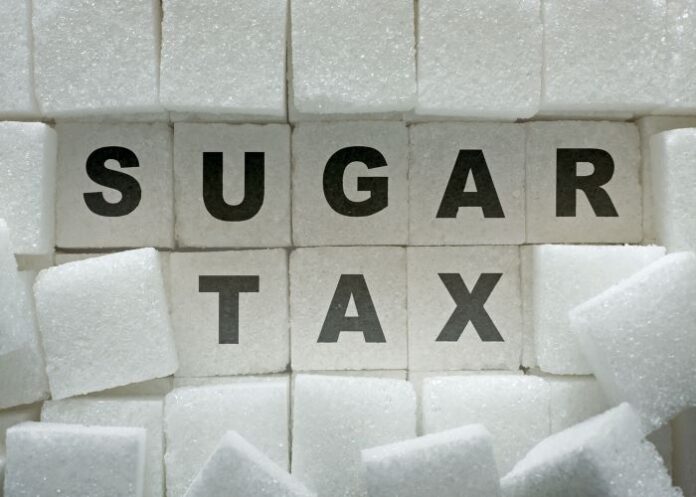Government is yet to provide data to show that obesity levels have declined since the introduction of the "sugar tax" in 2018, South Africa's cane growers say, calling for the levy to be scrapped. However, internationally, lobby groups are pushing for governments to introduce policy changes to restrict companies from promoting unhealthy life choices, notes MedicalBrief.
Treasury missed a deadline to supply them with information on whether the “sugar tax”, introduced in 2018, was assisting in reducing obesity, South African cane growers say in a BusinessLIVE report.
The health promotion levy was proposed in 2016 by Wits academics who suggested that paying an added 20% for a sugar-sweetened beverage would see a decline in obesity. The levy is about 10% of the price of a sugary drink, and led to beverage producers reformulating fizzy drinks to include lower sugar levels or more sweeteners.
In December, SA Canegrowers issued a Promotion of Access to Information Act application to the Treasury asking for all information and data relied on when introducing the levy in 2018 as well as subsequent decisions to increase it.
The Treasury had 30 days to respond to the request or explain why it needed an additional 30 days. Other than an acknowledgement of the request, Canegrowers says it has heard nothing from the Treasury.
The growers argue that while sugar consumption may have gone down, the government has produced no data to show obesity levels have declined.
However, researcher and economist Neva Makgetla said the government had a right to tax sugar because of health costs from excessive use, and that it would take generations to see changes resulting from reduced sugar consumption.
“Society bears the brunt of the overconsumption of sugar and the costs of diabetes and (sicker) people through higher health costs and higher medical insurance rates.”
In the same vein, global lobby groups are pushing for policy change by governments, urging leaders worldwide to initiate policies targeting big companies that advertise alcohol and tobacco products, sugary products and ultra-processed foods.
On World Cancer Day (4 February), the Union for International Cancer Control (UICC) noted that nearly half of all deaths from cancer are caused by modifiable risk factors, with smoking, alcohol consumption and high BMI among the top three.
Contributing to the high BMI are products like sugar-rich drinks and ultra-processed foods, which the group maintains are – like tobacco and alcohol – potentially addictive.
The group called on governments worldwide to help prevent millions of avoidable cancer-related deaths by implementing policies targeting big companies, saying all of these products are marketed by companies whose corporate interests often outweigh concerns for global health, reports Medscape.
It also believes the companies promoting these products and unhealthy lifestyle choices should be held responsible and face penalties and restrictions related to marketing and selling.
The group recommended a four-pronged approach to reducing the availability and consumption of unhealthy products linked to cancer-related deaths.
One is increasing taxation on tobacco and alcohol but also implementing a tax on sugar-sweetened beverages like soda, juice and energy and sports drinks, all known drivers of obesity that contribute to high BMI, a modifiable cancer risk factor.
The second recommendation is to increase marketing limitations including age restrictions and reduced points of sale. The UICC referenced a United Kingdom government analysis that analysed the impact of junk food advertisements on TV before 9pm.
The analysis suggested that banning the ads in the UK would result in £1.9bn in public health benefits, with reductions in obesity-related ill health over children’s lifetimes.
The third policy recommendation is to enhance labelling, imposing warning and information labels. At present, only tobacco products carry health warnings.
The fourth suggestion is to run extensive public education campaigns to improve knowledge of risk factors, and further counter misleading advertising, market promotion, and policy interference.
Medscape article – World Cancer Day: Half of Cancer Deaths Can Be Prevented (Open access)
See more MedicalBrief archives:
Finance minister delays increase in SA sugar tax for 12 months
International call for South Africa to double its ‘sugar tax’
WHO plans sugar taxes and restrictions on marketing unhealthy foods to children
Non-nutritive sweeteners linked to heart disease and cancer
WHO plans sugar taxes and restrictions on marketing unhealthy foods to children
Obesity taking over from smoking as the biggest cause of preventable cancer
Why SA isnʼt ready for health claims on food labels
See more from MedicalBrief archives:
Finance minister delays increase in SA sugar tax for 12 months
Activists: ‘Sugar tax is working and should be increased’
International call for South Africa to double its ‘sugar tax’
Calls for an increase in sugar tax to 20% but sugar farmers object
WHO plans sugar taxes and restrictions on marketing unhealthy foods to children

